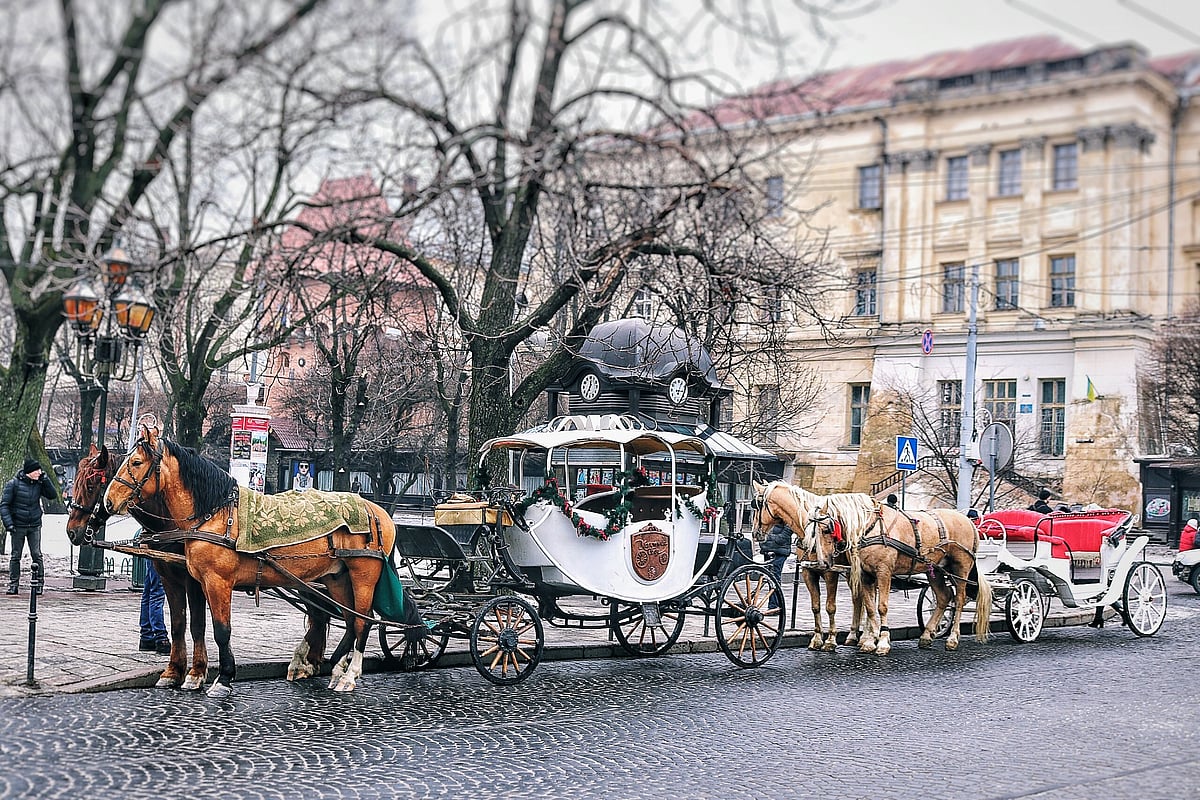Tech-n-Biz
A fortnightly section on technology and business
In his book ‘Farewell to Alms’ economist Gregory Clark points out that we can learn a thing or two about our future job prospects by comparing notes with our equine friends. Imagine two horses looking at an early automobile in the year 1900 and pondering their future: -
"I am worried about technological unemployment.
"Neigh, neigh, don’t be a Luddite; our ancestors said the same thing when steam engines took our industry jobs and trains took our jobs pulling stagecoaches. But we have more jobs than ever today, and we have better ones too; I'd much rather pull a light carriage through the town than spend all day walking in circles to power a stupid mine-shaft pumps."
"But what if this internal combustion engine really takes off?
"I'm sure there'll be new jobs for horses that we haven't yet imagined. That's what's happened before, like with the invention of the wheel and the plow"
Alas, those not-yet-imagined new jobs for horses never arrived. No-longer-needed horses were slaughtered and not replaced, causing the US equine population to collapse from about 26 million in 1915 to about 3 million in 1960.
The above excerpt beautifully combines the good case scenario with a bad case scenario. It is hypothetical and one can argue we are better than the horses when it comes to intelligence. When it comes to the impact of automation and AI on our jobs there are two divergent views.
It will eat our jobs
As per a McKinsey study - today's technology could automate 45 per cent of the activities people are paid to perform across all occupations. About 60 per cent of all occupations could see 30 per cent or more of their work activities automated. It is not only IT. Venture capitalist Vinod Khosla predicts that technology will replace 80 per cent of doctors. Pharmacists will not be needed. Legal profession will be equally impacted accordingly with automation and robo laws. Just because technology has created new jobs in the past, it does not mean it will happen always. This is an alarmist view and technology lovers just call it dystopian.
It will rather create new jobs
The second view is that while new technology will render some jobs irrelevant, it will also create a new set of jobs and it is merely a case of reskilling. It has happed in the past. For example, before the industrial revolution, most of the people were engaged in agriculture but they quickly moved to the industrial setup of production. When computer replaced some of the manual industrial jobs, it created programming jobs. Possibly this helped them get more free time of leisure and recreational activities. As per the proponents of this view, new technology enhances human potential and the rate of creation of new job by technology will be faster than the rate of destruction of existing jobs.
While the experts keep on debating on what will happen in future, no one has the crystal ball. At the same time, the progress of technology is unstoppable because it is benefiting us overall. Thanks to technology one day we may all have almost free energy and unlimited food. The oil will give way to natural energy sources like solar power which is practically everywhere. The solar panel from thinner silvers of silicon has become very effective. The rate at which it is growing, it is a couple of decades away from meeting 100 per cent of today's energy needs. This clean sustainable energy can be used for getting clean water and can enrich agriculture to produce almost unlimited food.
AI will be very much like electricity in a few years. As we electrified everything earlier, AI will cognitize all the objects around including humans. Most of the work we do today will be by AI in the most economical and efficient way. But we still need jobs, Voltaire wrote in 1759 that ‘work keeps at bay three great evils: boredom, vice and need’.
Artificial Narrow Intelligence (ANI)
The easiest thing to learn for an AI is the skills that we learn as an expert in a narrow domain. A stock trading and investment management job that can be articulated as a set of pre-defined rules, can most likely be replaced by a robust AI algorithm. It does not always mean that these jobs are low on creativity or innovation, but they are limited to one specific area and AI-powered by neural networks can far easily learn them in no time. A case in point is the game of chess. Just a few years back it was thought that it is one of the biggest cognitive challenges that can ever be conquered by the AI. But today the chess competitions the observers keep checking if the participants are not cheating by looking up to a computer. The AI has far outsmarted humans in playing chess. IBM’s deep blue defeated Gary Casparov way back in 1995.
Artificial General Intelligence (AGI)
This can be loosely translated as common sense. Most difficult skills to learn for the computers are those acquired by a child within the first 7 years of their age. It includes things like stair climbing, language skills, logical reasoning etc. This only concerns the broad architecture of brain development. We don’t know how exactly they work. The most difficult thing for a robot is to fold a collection of laundry (assume there is a towel, a shirt, a tie and your socks). Essentially these are activities that have a high component of creativity and innovation. They can’t be put into rules.
In a professional environment, if you can assess that your job can be performed by a freshly graduated students with few months of training than you can safely assume that your job could be on high risk.
Artificial Super Intelligence (ASI)
This stage is also known as singularity when the AI will break-out and multiply itself to create a system that will be practically incomprehensible and uncontrollable for humans. It will not be like the indestructible robots of the Hollywood sci-fi movies, but it will be more like invisible software programs leveraging a giant networked processing capability and unlimited compute power. Most probably they may not kill us, just that humans have not killed all the animals on this planet though we can technically do that.
In the end, the only thing that can protect your job from AI is learnability – ability and willingness to learn new things. It is a moving target but that can only be a certain answer in the uncertain future dominated by AI and automation.
Mishra is a software professional with over 20 years of experience with leading IT and consulting companies. He also works with universities as a startup mentor in the area of new technologies.











